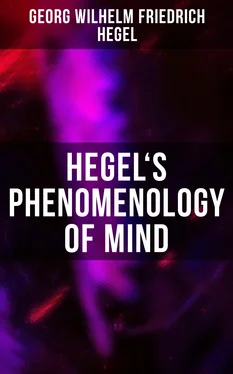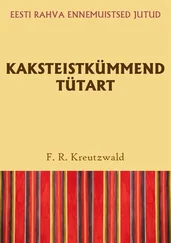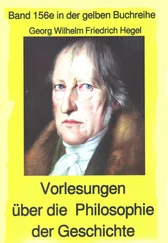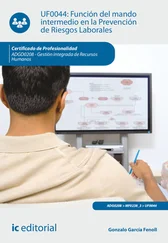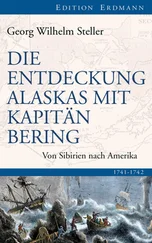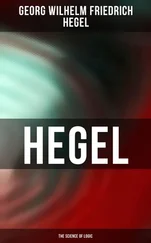This trial by death, however, cancels both the truth which was to result from it, and therewith the certainty of self altogether. For just as life is the natural “position” consciousness, independence without absolute negativity, so death is the natural “negation” of consciousness, negation without independence, which thus remains without the requisite significance of actual recognition. Through death, doubtless, there has arisen the certainty that both did stake their life, and held it lightly both in their own case and in the case of the other; but that is not for those who underwent this struggle. They cancel their consciousness which had its place in this alien element of natural existence; in other words, they cancel themselves and are sublated as terms or extremes seeking to have existence on their own account. But along with this there vanishes from the play of change the essential moment, viz. that of breaking up into extremes with opposite characteristics; and the middle term collapses into a lifeless unity which is broken up into lifeless extremes, merely existent and not opposed. And the two do not mutually give and receive one another back from each other through consciousness; they let one another go quite indifferently, like things. Their act is abstract negation, not the negation characteristic of consciousness, which cancels in such a way that it preserves and maintains what is sublated, and thereby survives its being sublated.
In this experience self-consciousness becomes aware that life is as essential to it as pure self-consciousness. In immediate self-consciousness the simple ego is absolute object, which, however, is for us or in itself absolute mediation, and has as its essential moment substantial and solid independence. The dissolution of that simple unity is the result of the first experience; through this there is posited a pure self-consciousness, and a consciousness which is not purely for itself, but for another, i.e. as an existent consciousness, consciousness in the form and shape of thinghood. Both moments are essential, since, in the first instance, they are unlike and opposed, and their reflexion into unity has not yet come to light, they stand as two opposed forms or modes of consciousness. The one is independent, and its essential nature is to be for itself; the other is dependent, and its essence is life or existence for another. The former is the Master, or Lord, the latter the Bondsman.
The master is the consciousness that exists for itself; but no longer merely the general notion of existence for self. Rather, it is a consciousness existing on its own account which is mediated with itself through an other consciousness, i.e. through an other whose very nature implies that it is bound up with an independent being or with thinghood in general. The master brings himself into relation to both these moments, to a thing as such, the object of desire, and to the consciousness whose essential character is thinghood. And since the master, is ( a ) qua notion of self-consciousness, an immediate relation of self-existence, but ( b ) is now moreover at the same time mediation, or a being-for-self which is for itself only through an other — he [the master] stands in relation ( a ) immediately to both ( b ) mediately to each through the other. The master relates himself to the bondsman mediately through independent existence, for that is precisely what keeps the bondsman in thrall; it is his chain, from which he could not in the struggle get away, and for that reason lie proved himself to be dependent, to have his independence in the shape of thinghood. The master, however, is the power controlling this state of existence, for he has shown in the struggle that lie holds it to be merely something negative. Since he is the power dominating existence, while this existence again is the power controlling the other [the bondsman], the master holds, par consequence , this other in subordination. In the same way the master relates himself to the thing mediately through the bondsman. The bondsman being a self-consciousness in the broad sense, also takes up a negative attitude to things and cancels them; but the thing is, at the same time, independent for him and, in consequence, he cannot, with all his negating, get so far as to annihilate it outright and be done with it; that is to say, lie merely works on it. To the master, on the other hand, by means of this mediating process, belongs the immediate relation, in the sense of the pure negation of it, in other words he gets the enjoyment. What mere desire did not attain, he now succeeds in attaining, viz. to have done with the thing, and find satisfaction in enjoyment. Desire alone did not get the length of this, because of the independence of the thing. The master, however, who has interposed the bondsman between it and himself, thereby relates himself merely to tile dependence of the thing, and enjoys it without qualification and without reserve. The aspect of its independence he leaves to the bondsman, who labours upon it.
In these two moments, the master gets his recognition through an other consciousness, for in them the latter affirms itself as unessential, both by working upon the thing, and, on the other hand, by the fact of being dependent on a determinate existence; in neither case can this other get the mastery over existence, and succeed in absolutely negating it. We have thus here this moment of recognition, viz. that the other consciousness cancels itself as self-existent, and, ipso facto, itself does what the first does to it. In the same way we have the other moment, that this action on the part of the second is the action proper of the first; for what is done by the bondsman is properly an action on the part of the master. The latter exists only for himself, that is his essential nature; he is the negative power without qualification, a power to which the thing is naught. And he is thus the absolutely essential act in this situation, while the bondsman is not so, he is an unessential activity. But for recognition proper there is needed the moment that what the master does to the other he should also do to himself, and what the bondsman does to himself, he should do to the other also. On that account a form of recognition has arisen that is one sided and unequal.
In all this, the unessential consciousness is, for the master, the object which embodies the truth of his certainty of himself. But it is evident that this object does not correspond to its notion; for, just where the master has effectively achieved lordship, he really finds that something has come about quite different from an independent consciousness. It is not an independent, but rather a dependent consciousness that he has achieved. He is thus not assured of self-existence as his truth; he finds that his truth is rather the unessential consciousness, and the fortuitous unessential action of that consciousness.
The truth of the independent consciousness is accordingly the consciousness of the bondsman. This doubtless appears in the first instance outside itself, and not as the truth of self-consciousness. But just as lordship showed its essential nature to be the reverse of what it wants to be, so, too, bondage will, when completed, pass into the opposite of what it immediately is: being a consciousness repressed within itself, it will enter into itself, and change round into real and true independence.
We have seen what bondage is only in relation to lordship. But it is a self-consciousness, and we have now to consider what it is, in this regard, in and for itself. In the first instance, the master is taken to be the essential reality for the state of bondage; hence, for it, the truth is the independent consciousness existing for itself, although this truth is not taken yet as inherent in bondage itself. Still, it does in fact contain within itself this truth of pure negativity and self-existence, because it has experienced this reality within it. For this consciousness was not in peril and fear for this element or that, nor for this or that moment of time, it was afraid f or its entire being; it felt the fear of death, the sovereign master. It has been in that experience melted to its inmost soul, has trembled throughout its every fibre, and all that was fixed and steadfast has quaked within it. This complete perturbation of its entire substance, this absolute dissolution of all its stability into fluent continuity, is, however, the simple, ultimate nature of self-consciousness, absolute negativity, pure self-referrent existence, which consequently is involved in this type of consciousness. This moment of pure self-existence is moreover a fact for it; for in the master it finds this as its object. Further, this bondsman’s consciousness is not only this total dissolution in a general way; in serving and toiling the bondsman actually carries this out. By serving he cancels in every particular aspect his dependence on and attachment to natural existence, and by his work removes this existence away.
Читать дальше
